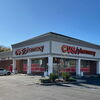Processing Your Payment
Please do not leave this page until complete. This can take a few moments.
- News
-
Editions
View Digital Editions
Biweekly Issues
- May 13, 2024
- April 29, 2024
- April 15, 2024
- April 1, 2024
- March 18, 2024
- March 4, 2024
- February 19, 2024
- February 5, 2024
- January 22, 2024
- + More
Special Editions
- Lists
- Viewpoints
- HBJ Events
- Business Calendar
- Custom Content
Local food delivery companies aim to take bite out of national competitors
 HBJ PHOTO | STEVE LASCHEVER
Bryce Hardy, owner of The Charles restaurant in Wethersfield, is also a part owner and user of local delivery service company Greater Hartford Menus.
HBJ PHOTO | STEVE LASCHEVER
Bryce Hardy, owner of The Charles restaurant in Wethersfield, is also a part owner and user of local delivery service company Greater Hartford Menus.
Local restaurants from around the state are banding together to launch their own online food ordering and delivery services, in a bid to compete with national players — like Uber Eats and DoorDash — that are often the target of restaurateur’s scorn for charging exorbitant fees or offering of lackluster customer service.
Two such companies, Greater Hartford Menus and Nosh Haven, launched in the Hartford and New Haven markets in late 2021. A third, Shoreline Menus, launched a few years ago.
All three companies are owned by local restaurateurs and use a technology platform developed by another Connecticut-based company, Eatzy.
“People in general would rather support local,” said Alex Foulkes, owner of Penny Lane Pub in Old Saybrook and founding partner of both Shoreline Menus and Eatzy.
The focus on affordable and reliable food delivery services has only been heightened during the pandemic, which encouraged more people to order take-out, rather than dine-in at a local restaurant.
Many restaurants over the last few years have adopted online ordering services, but delivery has been a bigger challenge.
The advent of mobile apps like Uber Eats and DoorDash has made delivery services more widely available to small restaurants, but their use comes with high fees — as much as a 30% commission — making them impractical for some.
Other locally-operated food delivery service providers also operate in the market. For example, Waiter Wheels serves Greater Hartford, while Vroom Service, which recently partnered with national company delivery.com, operates in the New Haven area.
Building Eatzy
Foulkes said the idea to create a local food delivery service came in response to how some of the big industry players operate, especially as they’ve expanded into smaller towns in recent years.
He recalled a specific encounter with an Uber Eats representative.
“I just didn’t love my interactions, I didn’t love the structure of everything so I ended up telling them that I didn’t want to work with them,” Foulkes said.
Later on, Foulkes said DoorDash began automatically adding Old Saybrook restaurants, including his Penny Lane Pub, to its app and accepting orders, causing headaches for local establishments.
“We just started getting orders,” Foulkes said. “They created a lot of chaos in our restaurants – we don’t want just money, we want a structured, well-run restaurant where our customers are happy with the product.”
After that, Foulkes said he and other restaurant owners began discussions on starting a local delivery option they would own and operate. He eventually linked up with Douglas Wrightsman, a Westport resident who ran a food delivery service in Denver in the 1990s and had a technology platform to make their plan a reality.
The Eatzy brand was established to partner with different local delivery services. So far, three have launched in Connecticut.
“We connected and it was amazing right from the start,” Foulkes said. “I told [Wrightsman] my vision and he told me his vision and we brought together the group of [business owners] and the technology.”
Business model
Shoreline Menus launched in 2019 and operates along Connecticut’s coast from Branford to Stonington. Foulkes said that company started with three partners and six or seven restaurants but now has about 150 restaurants and other small businesses signed up.
Greater Hartford Menus and Nosh Haven launched in October and November, respectively.
“Each market is financially independent and operates on their own,” said Eatzy Marketing Manager Dylan Lyons. “They’re interdependent in terms of sharing the technology and the model.”
When new potential service areas open up, Foulkes said they reach out to local shops to see if they’re interested in ownership stakes as partners, or would like to sign on as clients.
Restaurants pay a fee per order to use the service. And each delivery service company sets its own rates.
Foulkes declined to disclose fee structures, but in 2020 the Connecticut Magazine reported fees typically start at 20% for non-partners but can be as low as 15% for restaurants that have an ownership stake in the company.
Fee revenues are used to pay drivers, the delivery service company and Eatzy to help fund marketing and tech development.
Here’s an example of a transaction, according to Lyons, based on a $100.20 order from Naples Pizza in Farmington. Adding in an 18% tip (that goes fully to the driver) and $7.35 in taxes, the total bill for the customer is $125.60. Naples would collect $85.17 on the order after subtracting the 15% fee.
“We want [restaurants] to be profitable and we want the partners to get dividends each year,” Foulkes said.
Other than fee rates, local food delivery companies also have to compete for drivers.
Rather than using fully-automated dispatch, like many big companies use, representatives from Greater Hartford Menus, Shoreline Menus and Nosh Haven personally vet drivers and stay in constant communication with them. Foulkes said driver accountability and connection is important to restaurants.
“We have a local management team that provides the tools and training to the drivers so that they feel they’re taken care of,” Foulkes said. “Our drivers are more committed.”
Foulkes said one of the next steps is developing a phone application for the food service brands and updating the Eatzy technology. More regional delivery operations could pop up in the future if there’s interest.
Thin margins
Bryce Hardy and his wife, Kerri Hardy, opened American comfort food restaurant The Charles in Wethersfield in June 2020, a few months after the pandemic began.
“We’ve been one of the fortunate restaurants to open and be successful through the pandemic,” Bryce Hardy said.
One challenge, however, was dealing with big national delivery companies that can have a “suffocating” effect on restaurants with fees as high as 30%, he said.
“We’re running on like 30% margins anyway, so to take 30% from us just isn’t worth it,” Hardy said.
Hardy said he began delivering with Greater Hartford Menus in February after joining as an investing partner last year. He said he was intrigued by the business model that allows restaurants to have an ownership stake in the company.
“I see Greater Hartford Menus growing,” Hardy said. “I think this trend is here to stay a long time, maybe forever.”

2022 Giving Guide
This special edition informs and connects businesses with nonprofit organizations that are aligned with what they care about. Each nonprofit profile provides a crisp snapshot of the organization’s mission, goals, area of service, giving and volunteer opportunities and board leadership.
Learn more
Subscribe
Hartford Business Journal provides the top coverage of news, trends, data, politics and personalities of the area’s business community. Get the news and information you need from the award-winning writers at HBJ. Don’t miss out - subscribe today.
Subscribe
2024 Book of Lists
Delivering Vital Marketplace Content and Context to Senior Decision Makers Throughout Greater Hartford and the State ... All Year Long!
Read Here-
2022 Giving Guide
This special edition informs and connects businesses with nonprofit organizations that are aligned with what they care about. Each nonprofit profile provides a crisp snapshot of the organization’s mission, goals, area of service, giving and volunteer opportunities and board leadership.
-
Subscribe
Hartford Business Journal provides the top coverage of news, trends, data, politics and personalities of the area’s business community. Get the news and information you need from the award-winning writers at HBJ. Don’t miss out - subscribe today.
-
2024 Book of Lists
Delivering Vital Marketplace Content and Context to Senior Decision Makers Throughout Greater Hartford and the State ... All Year Long!
ABOUT
ADVERTISE
NEW ENGLAND BUSINESS MEDIA SITES
No articles left
Get access now
In order to use this feature, we need some information from you. You can also login or register for a free account.
By clicking submit you are agreeing to our cookie usage and Privacy Policy
Already have an account? Login
Already have an account? Login
Want to create an account? Register
Get access now
In order to use this feature, we need some information from you. You can also login or register for a free account.
By clicking submit you are agreeing to our cookie usage and Privacy Policy
Already have an account? Login
Already have an account? Login
Want to create an account? Register





0 Comments